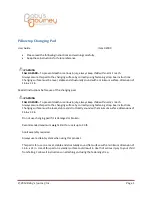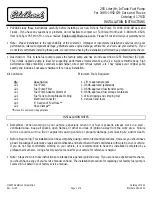
Wireless connection:
1.
Connect the RED wire of the wireless video transmitter to the wire that
supplies power to the reversing light (this wire is energized when the vehicle
is put into reverse gear). Measure the voltage on this wire to ensure it is
+12V when energized. Use a suitable splicing/crimp connector (Scotch lock
type) to connect the RED wire to the reversing light wire. Alternatively you
can strip back the insulation on the wire and solder the connection making
sure to insulate the connection with electrical tape or heat shrink tubing after
the join is made.
2.
Connect the black wire of the transmitter to a suitable ground such as the
metal body of the vehicle. Attach an “O” ring terminal at the end of the
black wire, and secure the wire to the vehicles chassis.
3.
Plug the RCA and power connections of the transmitter cable into the
corresponding sockets of the camera harness.
NOTE: Some cars that run LED or computer controlled lighting systems may not
deliver enough voltage to run the transmitter. If the voltage at the reversing light is
less than +11 volts, it may be necessary to use a relay to supply power to the
transmitter. In this case, the reversing light is only required to trigger the relay.
Testing the Reversing Camera
1.
Engage the vehicles park brake and switch the ignition key in the ON position.
DO NOT
start the vehicle.
2.
Select the reverse gear with the gear shift.
The monitor will sense the video signal from the camera and automatically switch on.
When switched on the screen will display an image of the rear of the vehicle.
In the event that you live in an area where RF interference is a problem (EG: Poor
video signal) you may need to change to a wired solution using an RCA cable (Not
included)
2






















